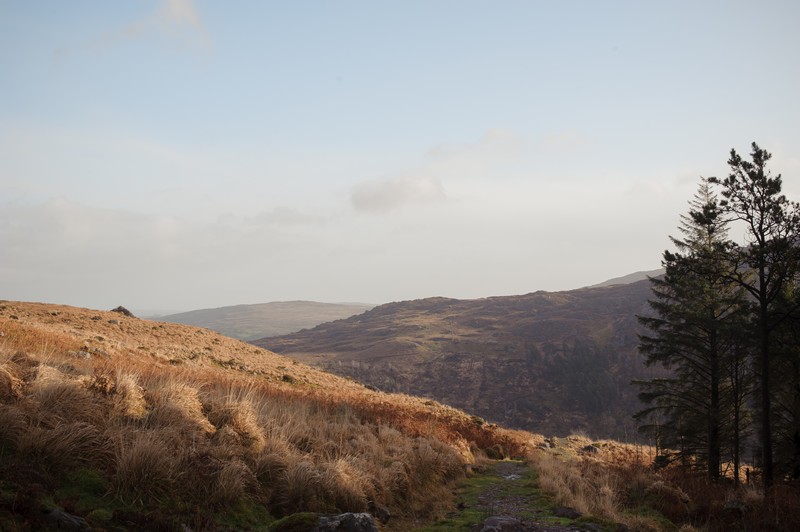Disclaimer: I’m not a legal expert. It’s important for you to do your own research. Bear in mind that a country’s rules and laws may change.
As a South African without any EU passport or British ancestral visa, it’s not that easy to get a job in Ireland. There are rules and there’s a lot of research involved for those from outside the EEA. The first thing you’ll find out is that South Africans can’t just go and work anywhere. That’s where work permits come in. A work permit is required for specific jobs, for a specific amount of time.
The Conundrum
Usually, there’s a cyclical problem: it’s a challenge to get a job if you aren’t in the country where you want to get a job, and you aren’t allowed to enter the country to look for a job. So, this is the first and main problem you’re likely to face and it isn’t an easy one to get around if you want to do things right. You can try and find out more about something called Work Seeker Authorisation but I think it basically means that you’re telling the State that you are entering the country to go for an interview. If you don’t have an interview, your only hope is getting a job over the Internet.

Work Permits
There are nine different types of work permits in Ireland. Even so, getting a job is complicated because for employers, hiring someone who needs a work permit (in this case, an non-EEA national) is expensive and there are a few hoops that the employer has to jump through. For example, when hiring non-EEA nationals, employers may need to do a Labour Market Needs Test or to prove that they are also hiring a good percentage of nationals from their own country.
General Employment Permits will need to have a Labour Market Needs Test done by the employer as part of the application. These permits don’t have as many advantages as the Critical Skills Work Permit. Be aware that there are some occupations that won’t be accepted for any employment permits.
What will make it worth it for employers to hire outside the EU or EEA is if they can attract skilled workers that they have a shortage of in their own country or the EU. Each country most likely has a different skills shortage. For Ireland, you can find out about in-demand occupations and if you are in one of those fields, you might be able to apply for a Critical Skills Permit (I think they used to call it a Green Card in Ireland).
Getting a Job
You can look on job websites and contact recruitment agencies, but most of them are looking for EU nationals. You could also try to send out your details directly to companies that you would like to work for. If you’re working in the IT industry, you will find a number of IT recruitment agencies online.
Once you’ve had your Skype interviews and once you get a job offer, the next few weeks will fly, so hold onto your hat. You will have to fill out an application form (it’s a good idea to print it in colour otherwise the text field fillers that say “BLOCK LETTERS” will stand out too much). Courier it back to the recruitment agency or employer – use a courier in case of surprise South African Post Office strikes. You’ll most likely need to send a colour passport photo with your application form as well. We just used PostNet and at that time I think the fastest service was about R350. Take note of that, because there are a few little costs like this that can add up quite quickly.
The employer might pay the application fees, or you might have to (either €500 or €1000 depending on the permit and duration). The application takes about a month to process and if your application is rejected it might just mean that more information is required. If this happens, you’ll have 21 days to appeal the rejection with supporting documents that might have originally been left out. You can request that the work permit is couriered back to you.
Getting to Ireland
Some nationalities will need a visa to enter Ireland for tourism, but South Africans don’t need to apply for a short-stay (holiday) visa to visit Ireland. You just pitch up and introduce yourself to the Immigration officer at the airport. You would need your passport and return ticket. Note that the Immigration offer could ask you for anything, so it’s best to be prepared (with evidence of a return flight, funds or a bank statement and accommodation etc.). We took with our proof of accommodation for two weeks (until we could find a place to stay), proof of funds to show we were able to support ourselves (budget about €35 per day per person), marriage certificate and travel (including health) insurance. We also got Police Clearance certificates to show that we had no criminal records, but it wasn’t actually necessary.
When entering Ireland for work purposes, don’t forget to bring your original work permit. You can enter Ireland without a return ticket if you have a job offer on paper (or work permit). If you have a Critical Skills Permit, your spouse can also enter without a return ticket (you will need your marriage certificate though).
If the Immigration Officer is happy with your permit, marriage certificate and passports and you’ve told him your intentions, and answered his questions as directly and simply as possible, then he’ll put a stamp in your passport mentioning that you should stop at the GNIB (Garda National Immigration Bureau) before a certain date and register there (we were given three months). Here are the addresses for the GNIB offices in Ireland. Note that if you will be living in Dublin, you will need to make an appointment to go to the GNIB.
Visiting the Garda National Immigration Bureau
The GNIB in Cork opens at 09:00, closes at 12:00 for lunch until 14:00 and then remains open until 16:00. The officers are friendly and helpful. You’ll need to bring money for your GNIB card or IRP (Irish ResidencePermit) which costs €300 per person (per year). You can pay this with a card. You will also need your proof of residence and passport (valid far into the future). They’ll also take a photo of you for the residence card.
The application for your IRP card then goes off to Dublin and within two or three weeks it should be back at your local GNIB for collection. They won’t contact you to let you know, so make sure to set a reminder for yourself. If you don’t collect it in time, it will go back to Dublin and you’d have to re-apply. You don’t want to be in a situation where that happens and your stamp given by the Immigration Officer at the airport expires while you are awaiting a new card.
The Stamps
On your IRP card you will probably either get a stamp 1 (permission to remain in the state to work with a permit) or a stamp 3 (permission to remain without being able to work). The card should be valid for a year. Remember to renew your GNIB card about a month or so before it expires because you don’t want to be caught betwixt and between.
I currently have stamp 3. As a spouse to someone with a Critical Skills Work Permit, I can apply for permission to work (stamp 1). There will be no cost for my first work permit, but the GNIB card will be re-issued for another €300.
If you have a Critical Skills Permit and decide you want to stay on in Ireland after it has expired (it usually lasts for 2 years), you can apply for Long Term Residency. This means you can stay in the country until a specified date and won’t need a work permit (stamp 4). Youw ill however need to ensure taht you always have a valid stamp in your passport and a valid IRP card (usually they last 1 year). You can read more about the stamps.
The Order of Things
Since there are many steps in the process that rely on each other, here’s what I’ve figured out so far:
- Get a job interview and if required get Work Seeker Authorisation
- Get the job (resign from your current job too)
- Courier through the employment permit application form
- If the application is rejected, appeal with the required documents
- Check the application progress and have the original permit couriered to you
- Book your tickets to Ireland with your supporting documents and permit
- Register with the Garda National Immigration Bureau as soon as possible
- Collect your IRP permit from the GNIB
- Save more than you spend
- Toughen up for your first day of work
Useful Papers
- You’ll need to have a passport that has an expiry date a long way off and a good few free pages (for future stamps)
- An unabridged marriage certificate (this can take two months or more to arrive from South Africa’s Home Affairs offices)
- Your unabridged birth certificate (also just in case, this can also take a while to get from Home Affairs)
- You might want to get a Police Clearance Certificate from SAPS although this isn’t really required (no one has asked us for it)
- Bank statements showing that you have enough money to support you & your family until your first pay check arrives
- Proof of paid for temporary accommodation until you can find a place to rent
- Travel and medical insurance for up to three months
- Your driver’s license (South Africans can drive in Ireland for up to a year, but exchanging it for an Irish license will dramatically decrease your insurance premiums)
Well, that’s about it. A lot of details to take in, I know. It will really help to get as organised as possible and be prepared. Good luck!


